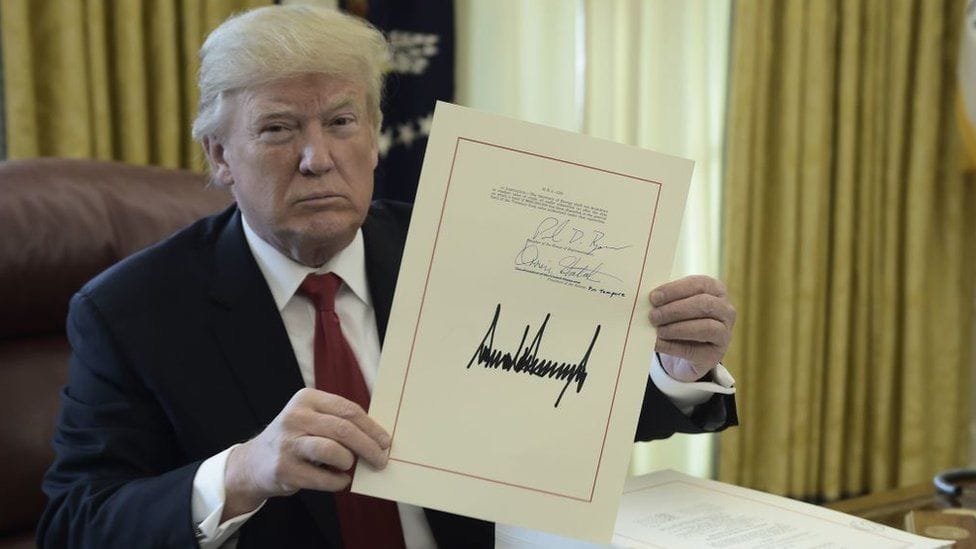The proposed tax bill from the Trump administration has ignited discussions around its potential impacts on foreign companies operating in the United States, particularly concerning the taxation framework. This legislative measure proposes several changes that could lead to higher tax liabilities for foreign enterprises, raising concerns about the attractiveness of the U.S. market for foreign investment.
A central feature of the proposed tax framework is a shift toward a more globally minded taxation system, which could disproportionately affect foreign corporations. Currently, the United States has one of the highest corporate tax rates among developed nations; however, the reforms aim to lower this rate while also increasing the tax burden on earnings made by foreign businesses within the country. Instead of encouraging foreign firms to invest and establish operations in the U.S., the new tax structure could yield a disincentive effect.
Taxation of foreign affiliates will likely alter the calculations made by international firms when deciding where to allocate their capital. Many companies weigh the benefits of operating in the U.S. against potential tax liabilities. If the new tax bill indeed raises the tax rates for foreign businesses, this could effectively change the landscape, prompting foreign entities to consider other markets. Countries that provide favorable tax conditions may become increasingly appealing alternatives for international companies.
In addition to tax rates, the proposed bill may include provisions that restrict specific tax deferrals. For instance, many multinational corporations benefit from deferring the U.S. taxation of foreign-sourced income until those earnings are repatriated to the U.S. Under the new bill, tighter regulations could limit this deferral strategy, creating immediate financial implications for foreign companies. This could lead to an increased cash flow out of the U.S. economy, adversely impacting local economic growth and job creation in sectors reliant on foreign talent and resources.
Furthermore, market reactions to the proposed bill may amplify these concerns. Stock market analysts and financial investors closely monitor legislative developments that could affect large multinationals. Any indication that foreign investment may decrease can trigger negative market responses. Such investor sentiment may discourage share purchases in impacted sectors, leading even domestic companies to reconsider their dependence on foreign investment. The ripple effects could extend beyond the corporate world, ultimately impacting employees and consumers alike.
Another significant consideration is the international response to these tax changes. Various countries might engage in retaliatory measures, adjusting their tax structures to remain competitive. This could escalate tensions between the U.S. and other nations, stifling the spirit of international cooperation that has historically supported global trade and investment. Countries may also seek to entice foreign businesses away from the U.S. by implementing lower tax rates or offering other incentives, creating a competitive disadvantage for American businesses in the global arena.
Despite these potential negative outcomes, proponents of the tax bill argue that a higher tax on foreign entities could help level the playing field for American companies, which often face stricter regulations within their home country. By ensuring that foreign competitors contribute equitably, the U.S. government aims to strengthen national industry. However, the discussion surrounding the bill presents a classic trade-off between protecting domestic interests and sustaining an environment conducive to foreign investment.
Economists and business representatives emphasize the need for a more balanced approach. Policymakers may consider implementing tax reforms that attract foreign investment while safeguarding American businesses. A comprehensive review of current tax regulations, taking into account the global competitive landscape, could facilitate a more stable investment climate. Strategic collaborations could also offer a solution, enabling the U.S. to negotiate tax treaties with other countries to foster mutual investment benefits.
Ultimately, the extent to which the tax bill may curtail foreign investment remains uncertain. Numerous variables, including global economic conditions, geopolitical tensions, and the responses of foreign companies, will influence investment patterns moving forward. However, it is crucial for stakeholders, including business leaders and policymakers, to engage in thoughtful dialogue about the implications of this tax bill, allowing for a constructive examination of its potential effects on the U.S. economy and international relations.
In summary, the evolving landscape of U.S. tax policy introduces complexities for both domestic and foreign enterprises. The proposed tax bill, with its potential to increase taxes on foreign companies, raises critical questions about future international investment in the United States. Understanding these dynamics will be essential for navigating the implications of a changing tax environment.


